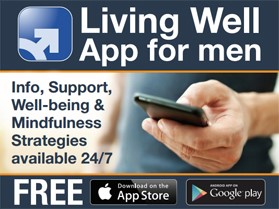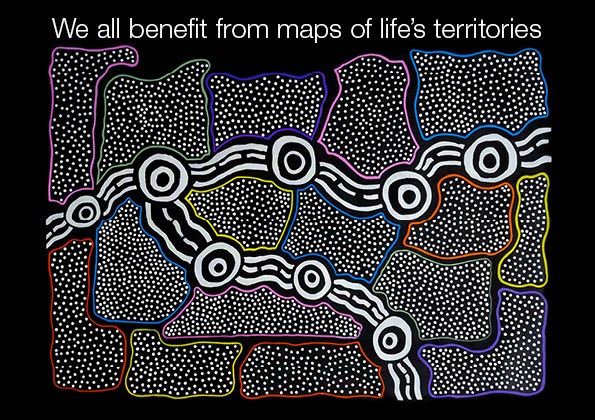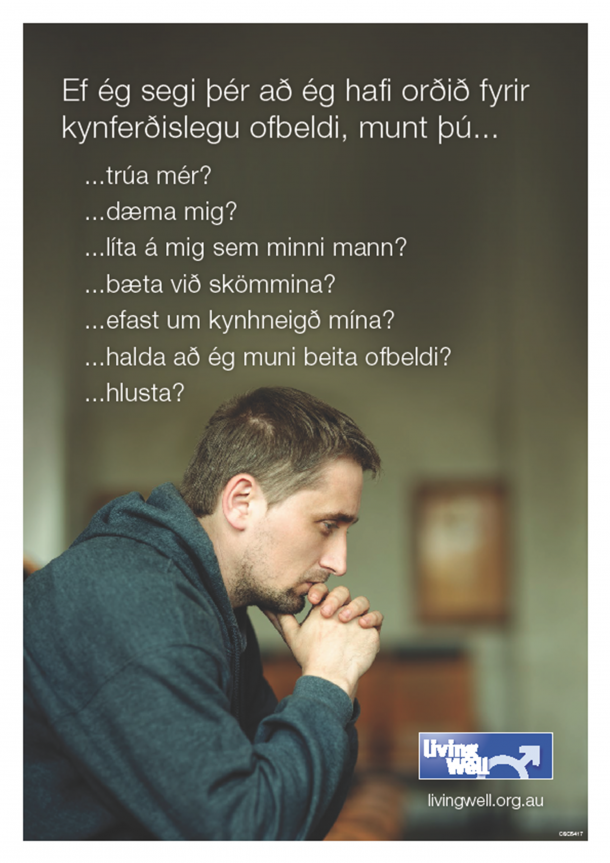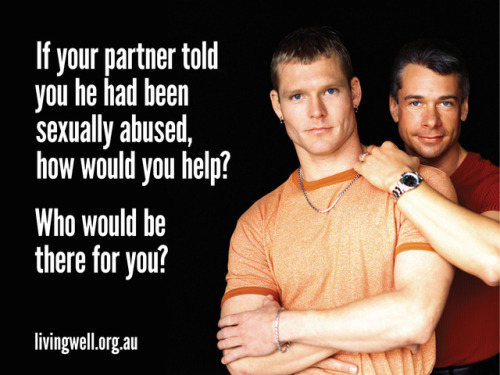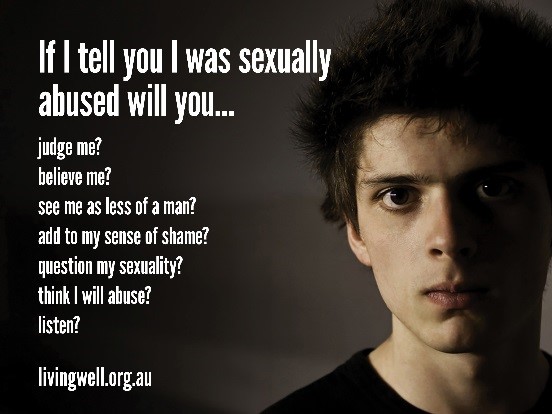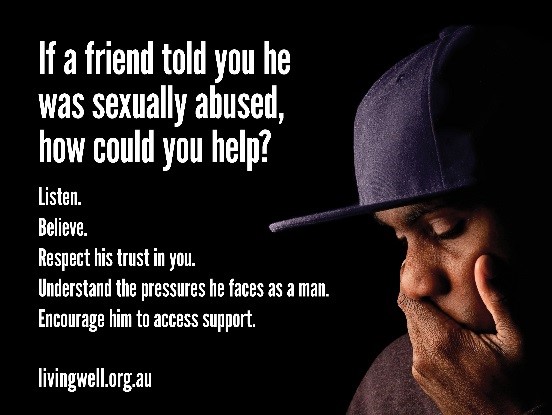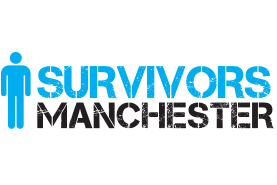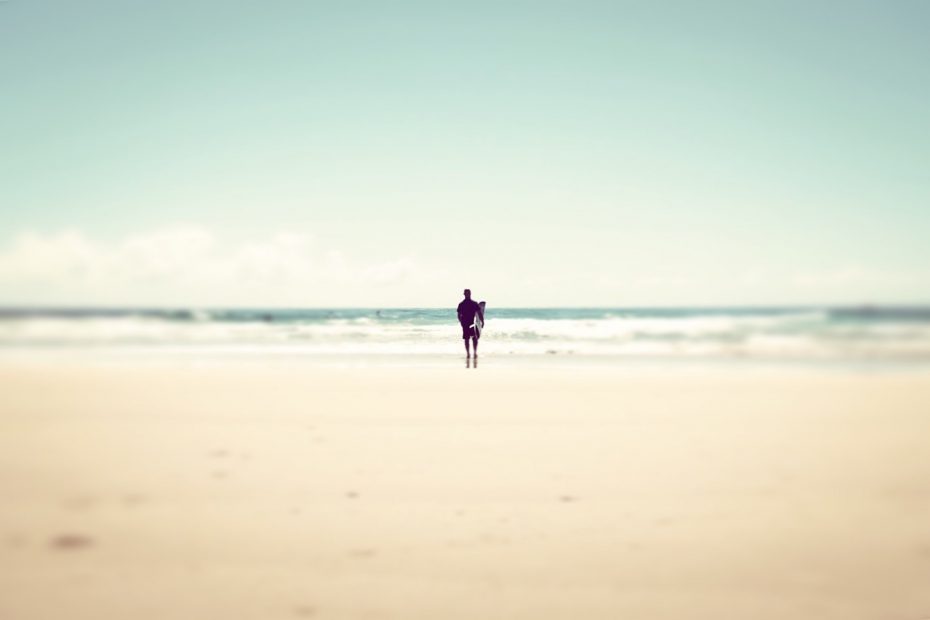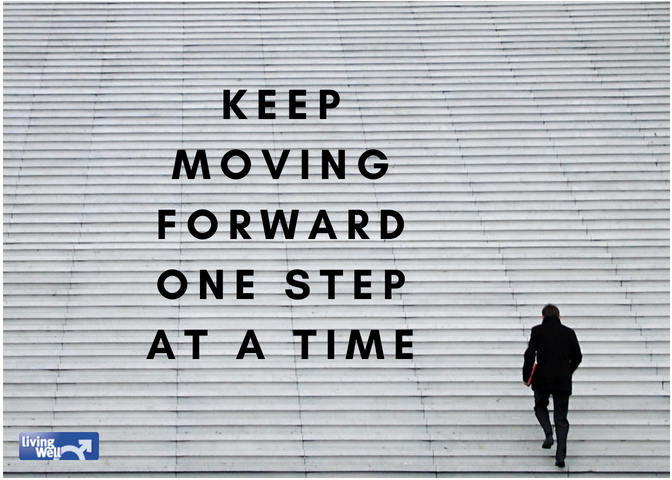Celebrating 10 years of
and learnings along the way
Dr Gary Foster – Founder Manager of Living Well
The Living Well Service turned 10 years old in October, 2018. This seems an opportune time to take stock and look at what we have learnt and achieved along the way and for myself, as founder manager, to take a breath and a step back. While there is much to reflect upon, I will be as brief and to the point as possible.
Disclaimer: This page and List of 12 Learnings were compiled at short notice. These reflections are not my own and are not rocket science. I owe a debt of gratitude to all those who have so generously shared their time and learning with me.
Learning 1: Be proactive – we all have to start somewhere
Living Well was born out of a concern for the limited resources and support services for men who have been sexually abused childhood or sexually assaulted as an adult, and for impacted, partners, families and communities. In the early 2000s, men had started to seek out counselling and support and were reporting that the absence of an identified specialist service and resources for male victims/survivors increased their sense of isolation, distress and self-blame. 5 years of advocacy, producing research evidence, needs analysis, articles and reports, and meeting with policy advisors and State Government Ministers produced no funding or change.
By chance, a Queensland Gambling Community Benefit Fund Grant Application came to my attention, and although the word was they only funded tangibles, like cars or new equipment, my application to create a website for male survivors of sexual violence was successful.
The origin of nearly all the community based sexual assault services that I know, starts with women, and later men, gathering together, advocating, creating and organising responses. Be proactive – we all have to start somewhere.
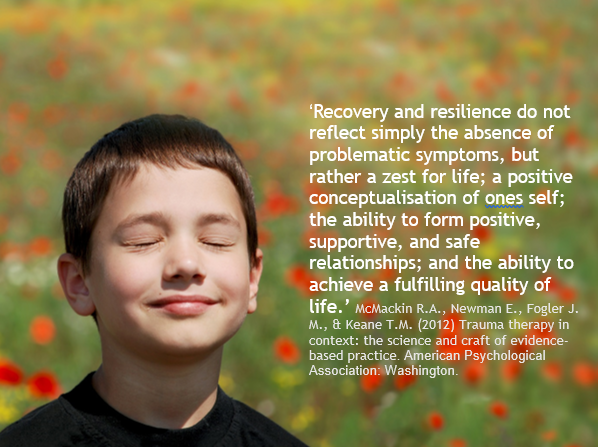
Learning 2: Consult and be positive
The men and women we work with guide us and let us know if we are on track. I thought I had worked out an excellent name for the website and service, until I spoke with members of the men’s group I was facilitating. Beyond Blue was developing a profile in provision of online information and support for people tackling depression and anxiety, so I thought ‘Beyond Surviving’ would work well. The group members, however, were concerned the name linked them too closely to the abuse. They were keen to emphasise something more than moving beyond surviving, they wanted to live a good life, to live well. Hence, the name Living Well.
This emphasis on working with people to not just manage impacts and symptoms, but to improve their overall quality of life, is something men and women who access our service have repeatedly identified as important. This positive whole of person approach is something that is emphasised in research and practice.
Learning 3: It is important to expose and face uncomfortable truths
Even when you think you have an understanding of the depth of horror of childhood sexual abuse and the systemic failure to respond at a community level, you don’t. The Australian Royal Commission into Institutional Responses to Child Sexual Abuse significantly deepened our understanding of the extensive impacts people can experience, including:
- Distrust, sense of betrayal, guilt, shame, self-blame.
- Mental health: clinical diagnosis, PTSD, depression/anxiety, hypervigilance, disassociation/numbing, flashbacks
- Eating/Body image issues
- Suicidality/self-harm
- Abuse of drink, drugs, addictions, pornography, gambling, workaholism
- Relationship difficulties/disorganised attachment
- Sexual/gender identity and sexual difficulties
- Sleep difficulties, nightmares, insomnia
- Disconnection from culture, spirituality and religion
- Increased risk of re-victimisation and incarceration
- Involvement in society, education, employment and economic security
- Physical health difficulties, heart, digestive system, stress
We can no longer say we do not know how devastating and brutal sexual abuse can be. People’s lives and well-being have been significantly compromised and curtailed by child sexual abuse. For example, 3 clients of one Living Well Specialist Counsellor have died this year, one from accidental overdose within days of being released from prison, two from heart attack. Their ages were 40, 41 and 53. Thoughts of suicide are common, as evidence by the Royal Commission:
“One witness showed the Commissioners a photograph of 33 boys in his Grade 4 class at St Alipius in 1974, of whom 12 were dead.”
Individuals and institutions have allowed abuse to perpetuate and failed in their duty of care. As one judge said in sentencing:
“While masquerading as a follower of God, you terrified and corrupted innocent, vulnerable boys and did them lifelong damage. Your legacy disgusts me and every right-minded member of society. You represent a shameful episode in the history of not only the De La Salle Brothers but also Australia, so far as it relates to the care and protection of vulnerable children. You presided over an evil and depraved dysfunctional gulag right in our midst.”
Learning 4: Be innovative – Reach out, engage and provide practical support. Help those whom we will never see.
Naming and confronting the ripple effects of childhood sexual abuse is only one part of the challenge. Another is to ensure there is information, resources and support for those who have been subjected to child sexual abuse or sexual assault that assists them to better manage difficulties and have an improved quality of life.
At Living Well, we recognise that if we design our response only around direct counselling and support, we will assist less than 1% of men of who have been sexually victimised in our local area.
Our focus has been on developing an integrated service that provides people with practical resources, like the Living Well Guide for Men and Living Well App for Men. The App is accessed worldwide (check out the Time2Breathe function) and the Guide for Men now has Australian, North America, UK and Lithuanian Editions.
Sexual abuse and sexual assault are crimes that thrive on secrecy, that disconnect and isolate people from themselves and from accessing support. Whilst counselling and group programs are essential aspects of service delivery (groups address isolation, secrecy and self-blame), sometimes just saying the words and asking for help is too hard. The web has been a game changer in helping people who have been sexually assaulted feel less alone, and in providing access to information and support.
At Living Well, we have embraced the worldwide web and the opportunities it offers to decrease isolation and build support, knowledge and skill. For us, online and telephone resources are not adjunct or secondary to face to face counselling – they provide an additional and alternative means to reach out, engage and support community members.
We like to see ourselves as the little engine that could and did. In 2013, www.livingwell.org.au was identified as a website of national significance to be archived in perpetuity by National Library of Australia Pandora Project. The below infograph provides a statistical snap shot of our service delivery over the past 5 years.
Learning 5: A gender analysis recognises that gender shapes our lives – it does not define us
Recognition that sexual assault is a gendered crime goes beyond acknowledging that females are more likely than males to be sexually assaulted and that offences are predominantly committed by males. A gender analysis recognises that, in our society, gender influences who is subjected to sexual abuse and sexual assault; where and in what ways; how sexual abuse is experienced; what a person’s likely responses are; ways of managing and the subsequent impact on self and a person’s help seeking behaviour; and the support available to them and what responses are effective.
A gender analysis and working with men who have been sexually abused helps us to recognise:
- Our lives are shaped, but not defined by gender
- Gender can be both enabling and constraining
- There are both similarities and differences amongst genders
- Not to ignore, nor amplify, similarities and difference
- Some people do not fit within gender categories, identifying as trans, non-binary or gender fluid
Men who have been sexually abused are often only too aware of how gender shapes their lives, how it influences their ways of managing and accessing of support, and impacts their ability to speak up about what was done to them. A nuanced understanding of how gender operates and influences people’s lives, plus active work to challenge and disassemble gender stereotypes, is a key ingredient of service provision to all those who have been sexually assaulted.
In our society, gender influences how we understand sexuality – as we see and understand sex and sexuality through gender categories (see Genderbread Person), which has implications for men who are sexually abused. An essential part of our work to address the constraints of heteronormativity.
Learning 6: People are diverse – we have diverse experiences and our responses need to be diverse
It is important to recognise and value diversity. There is considerable heterogeneity amongst those who are sexually abused or assaulted. In order to support all members of our communities, we need to create diverse resources and forms of support that reach out and speak to this diversity. A diversity oriented, intersectional approach has been adopted in relation to female victims/survivors for some decades. Men are equally diverse and therefore it is important to develop resources and support that reaches out and engages men in all their diversity.
In acknowledging and responding to diversity amongst men, we recognise that some males are more likely to be sexually abused or assaulted. At Living Well, we see this increased risk of child sexual abuse and sexual assault not in terms of individual or group ‘vulnerability’, but with reference to abuse, misuse and unequal power relationships by those offending or failing to protect.
At Living Well, we have benefitted from the generosity of individuals and community groups that have partnered with us and helped us better understand their experience. We value and acknowledge:
Our partnership with Natjul Performing Arts and Brisbane Aboriginal and Torres Strait Islander ‘Didgeri’ group, to create the No more silence: It’s never too late to start healing, the Support: Contributions to healing and the No straight lines resources;
Our partnership with Deaf Services Queensland 34 Auslan Videos to support Deaf and Hard of Hearing community members who have been sexually abused in childhood;
Our partnership with WWILD with the creation of our eLearning module for practitioners Working with men with an intellectual disability who have been sexually abused;
Our partnerships with individual community members who have helped design and translate material into multiple languages.
Learning 7: We live and breathe in contexts – educate, advocate and support the supporters
Like all people, men who have been sexually assaulted live within particular social contexts. How these social contexts operate and respond to sexual assault influences the safety, support and well-being of the people we work with.
Part of the challenge of working with men who have been sexually assaulted is to improve community awareness and support. We are committed to creating material and resources that actively engage communities to better understand the challenges that men face, the particular contexts in which offences occur, the barriers to men’s disclosure and help seeking and how to overcome these.
The Royal Commission into Institutional Responses to Child Sexual Abuse highlighted the importance of paying attention to context, with two thirds of those coming forward seeking private sessions and legal advice being male. Whereas females are more likely to be abused in the home, childcare and health settings, males are more likely to be abused in places of worship, out of home care, social support services, juvenile justice and detention, education, recreation, sports and clubs, armed forces and youth employment settings.
Support the supporters: Partners
Work with partners and family members is particularly important when working with men. Evidence suggests that men are less likely to have a long term confidants or established support circles the way women do. Partners are often a cornerstone of men’s social and emotional well-being. The partner and friend is the person who is there on nights and weekends; who notices men struggling, starting to shut down and isolate. Services for partners, friends and family are therefore an essential aspect of a men’s service. At Living Well, in addition to individual counselling, we offer both a bi-monthly partners group and bi-monthly parents group to ensure those who support men are themselves properly supported.
Learning 8: Nurture relationships & build partnerships and coalitions
Living Well would not exist or been able to offer assistance and encouragement to as many people as we have, without the kindness and support of all of our friends and partner services. Services for men who have been sexually abused or sexually assaulted are in a developmental phase. This creates a challenge, but also an opportunity, as we join with other like-minded services seeking to improve awareness, understanding and support.
Both myself and the Living Well Service have benefited exponentially from the generosity and support of services that are ‘under construction’, often created by individuals, with a similar commitment and passion for the work. A big thank you to Steve at 1in6, Rick at Men and Healing, Duncan at Survivors Manchester and their team members.
This is in addition to Patrick at Griffith University, Craig at SAMSN, Ken at MSSAT, Cameron at Northern CASA, Alastair at Terre Des Hommes, Chris at the Refugee Law Project, Martyn at Mankind Counselling and all the members of the Queensland Sexual Assault Network. Plus, the grants and funding provided by Queensland Department of Justice and Attorney General, Commonwealth Department of Social Services and Anglicare Southern Queensland Community Services Commission.
I encourage taking time to develop relationships. Meet people one on one – connect personally – don’t attend network meetings to network. Relationships will help you make the most of opportunities and sustain you through the worst of times. Work out whether there are particular projects you can partner on, however small. Find points of connection and start to build momentum. Larger change occurs one step at time. Expect knock backs and struggles.
Put time into developing supportive, caring relationships, not for what you might get out of it, but because it is the right thing to do.
Learning 9: Maintain a laser sharp vision on mission & excellence
In order to best support men who have been sexually assaulted, we need to be clear about what our mission and vision is. It is easy to become overwhelmed and distracted, with so many competing demands and limited resources. Be clear about your purpose, who you are serving and in what ways (awareness raising, advocacy, resource provision, counselling f2f, phone, online, group programs, training, consultation etc.). See yourself as part of the larger puzzle and work out where you fit in, in creating change and improving support. Work out what your contribution is and be excellent at what you do.
Work with a clear plan and vision: aware that the need is great and you can quickly be caught responding to ever more pressing crisis and demands. Typically men will do everything they can to keep the lid on and self-manage prior to seeking support, hence when they do reach out, men are often in crisis or looking for a quick response to an acute presentation.
As a service, it is essential we do not operate in survival mode (I say this as a service that has struggled). Work to develop a strong, solid base, where we work in collaboration with other community services and recognise the limits of what we can offer.
Focus on excellence in all aspects of service delivery. People who have been sexually abused and assaulted deserve a high-quality trauma informed, gender appropriate response that draws on evidence-based research knowledge and practice.
Remaining truly victim/survivor centred in all aspects of service delivery can be a challenge for services, especially where the sexual assault service is one program or contract of many. It requires personnel to continuously remind ourselves of our vision and mission to serve. It is also necessary to ensure all staff members are properly supported and remunerated, including access to excellent clinical and operational supervision. This work is personal and will impact your life.
We owe a debt of gratitude to all those individuals and services who put their heart and soul into assisting and improving responses to those subjected to sexual violence.
Learning 10: Every day is a new day – change requires ongoing commitment
On the 22nd of October 2018 the Prime Minister of Australia, the Right Honourable Scott Morrison delivered a National Apology to those subjected to Institutional Child Sexual Abuse. Some of us thought such a day would never come. Present in Canberra was Former Prime Minister Julia Gillard, who when establishing the Royal Commission into Institutional Responses to Child Sexual Abuse identified this as an “important moral moment for our Nation” (it is not lost on me that it was the first female Prime Minister who announced the Royal Commission).
On the 26 March, 2017, the Chair of the Royal Commission, Justice Peter McClennan stated:
“Survivors have waited too long for an effective response to their suffering and the future protection of Australian children must be given the highest priority.”
The National Apology and Royal Commission are a starting place, not a stopping place. Change requires ongoing commitment.
Without the development and delivery of effective responses, the apology will ring as hollow words. Now is the time for action in terms of enhancing service responses to improve the lives of all those who have been sexually abused or sexually assaulted.
Every day is a new day to commit to this work and to ensure recommendation and commitments are delivered on (we are all accountable).
At Living Well, we are proud of the opportunity to partner with Survivors and Mates Support Network (SAMSN) and are hopeful that the recommended National Centre of Excellence will be created in 2019.
At Living Well we are proud of our small contribution to the ‘Quality Standards for Supporting Male/Victim Survivors of Sexual Violence’ developed by the UK Male Survivors Partnership (MSP). We believe that Australian men who have been sexually abused or assaulted deserve assurance that counsellors and services possess necessary expertise and knowledge and would support the creation of ‘Australian Quality Standards for Supporting Male/Victim Survivors of Sexual Violence’.
In recognising that we have come so far, I am aware that there is still much work to do. The recently developed Draft National Men’s Health Strategy for 2020-2030 did not acknowledge or identify strategies to improve the health and mental health of men who have been sexually abused or sexually assaulted.
I am also only too aware that there are significant gaps in counselling and support for men and women who have been subjected to child sexual abuse and sexual assault across Australia.
Learning 11: Celebrate wins – Make time to reflect and appreciate how the people we work with contribute to our lives – Collect and share stories of hope
Given the challenges of working to address the horror and often long-term impacts of childhood sexual abuse and sexual assault, it is important we celebrate the wins, notice how far we have come, and appreciate the positive contributions the people we work with have made to our lives.
My conversations with people have survived sexual abuse have been peppered with stories of incredible resilience, of refusal to be silenced, of mateship and care, of laughing in the face of adversity, of acts of kindness and support and of a commitment to make a difference.
Men I have spoken with have been heavily invested in not only protecting and ensuring what they experienced does not happen to others, but all those who have been abused in whatever circumstances have access to appropriate, information, counselling and support.
I have benefited from the incredible generosity of spirit and inspirational, hard work of Living Well staff past and present – Fatin, Cate, Heather, Gillian, Jess and Brenton – Thank you.
Whilst child sexual abuse and sexual assault can profoundly impact people’s lives and relationships, it would be a disservice to see people only through the lens of damage and abuse. Collect accounts of people that recognise and honour achievements and all aspects of their lives. Do not underestimate people’s resourcefulness, as one man said:
“The media image of guys who have been abused is often that his whole life is wrecked. This doesn’t give us hope. Because basically, we need inspirational work and stories to be told, because otherwise we get the sense that we can’t deal with things, that we don’t have it within ourselves. It’s sort of like a constant underestimation of our ability to deal with things, and to find peace in the midst of it all.”
Let’s collect and share more life stories that both acknowledge difficulties and provide encouragement and hope.
Learning 12: Time to step away – Be generous and kind
Long term sustainable work to reduce and address the impacts of sexual assault, involves stepping in and stepping out. Stepping in to do the work with a clear purpose and focus, helps to anchor us and ensure we are able to respond appropriately and deliver on both supportive process and preferred outcomes. Purposefully stepping out, helps us to reorient, regroup, to look at options, to gain a different perspective and plan where to from here.
It is time for me to step away. I recognise that determining when is the right time to step away is a challenge for a Founder/Manager/ED like myself (I identify as having 5 children, 4 biological children and my youngest child, 10-year-old Living Well, who it is difficult to leave).
I can say with pride that I worked as hard as I could to create resources and improve service responses for men and their loved ones. I have been privileged to meet and work with so many wonderful people. I believe we have shone brightly and hopefully ‘moved the needle a little’ (to steal another expression from Steve LePore). Whilst we have achieved beyond our expectations and there is so much to celebrate, this pales in comparison to how much work there still is to do.
I am unsure what the long-term future will be for Living Well. I see considerable untapped potential. My hope is that we can continue to serve, to improve resources and service responses, not only for men who have been sexually abused in childhood or sexually assaulted, but for all those impacted by sexual violence.
Sign off
I am fortunate to have the last word in writing this Celebration of 10 years of Living Well. I invite all service providers to continue to be generous. Our knowledge and skill is not our own. It has been collected and built upon through the sharing of insights, encouragement and kindness of others.
As Jean-Jacques Rousseau, the French Philosopher and survivor of sexual abuse, said “There is nothing better than the encouragement of a good friend.” I encourage you to…
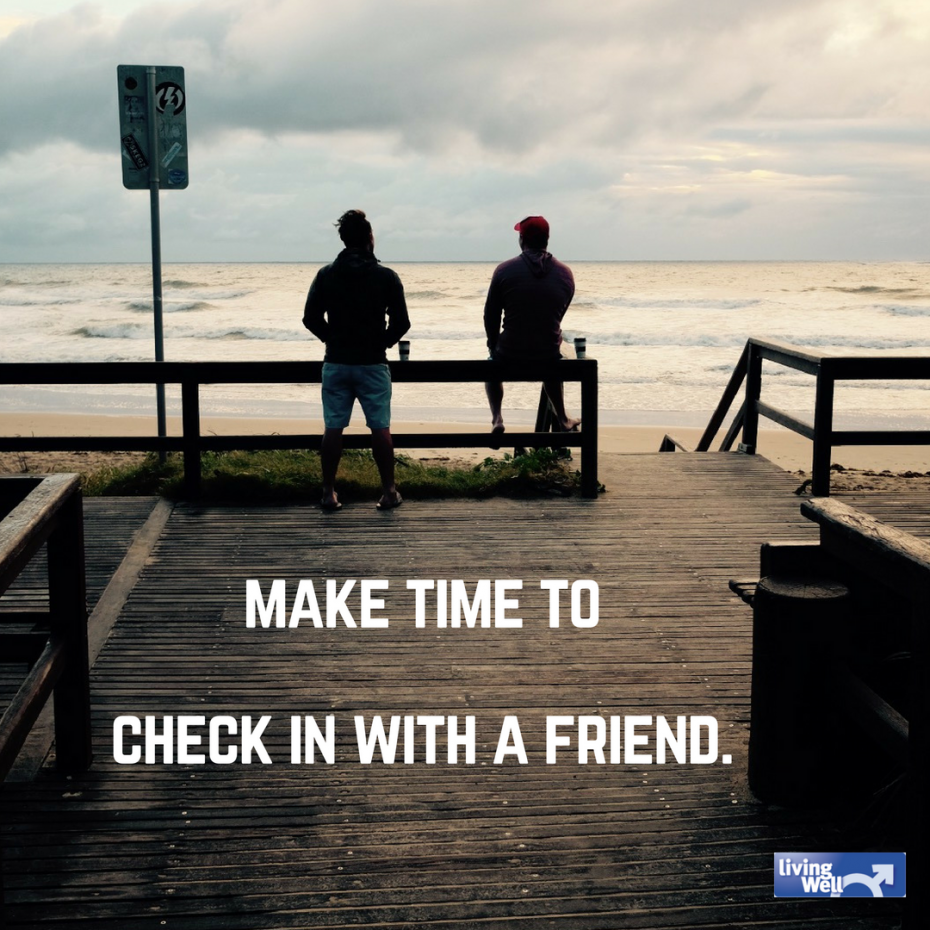
Thank you,
Gary


